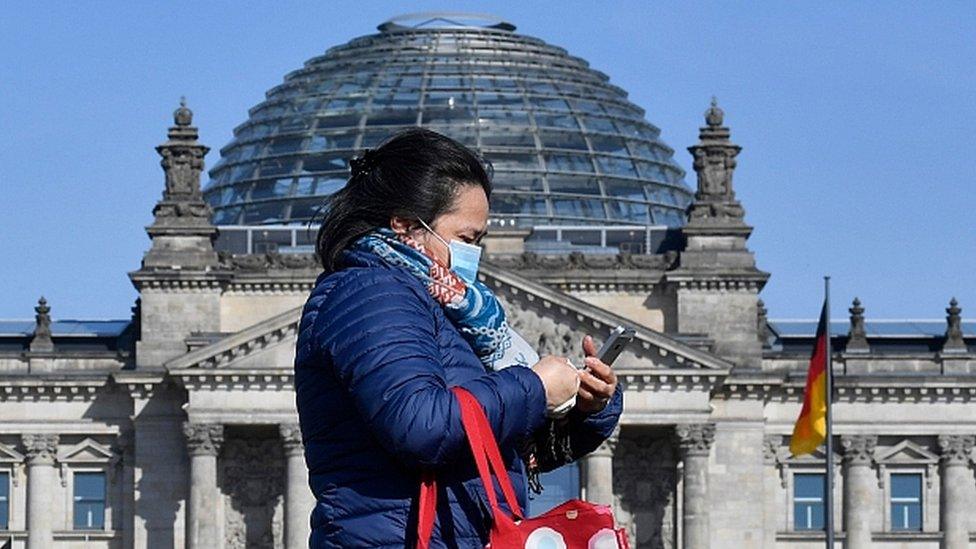Coronavirus: Belgium unveils plans to lift lockdown
- Published
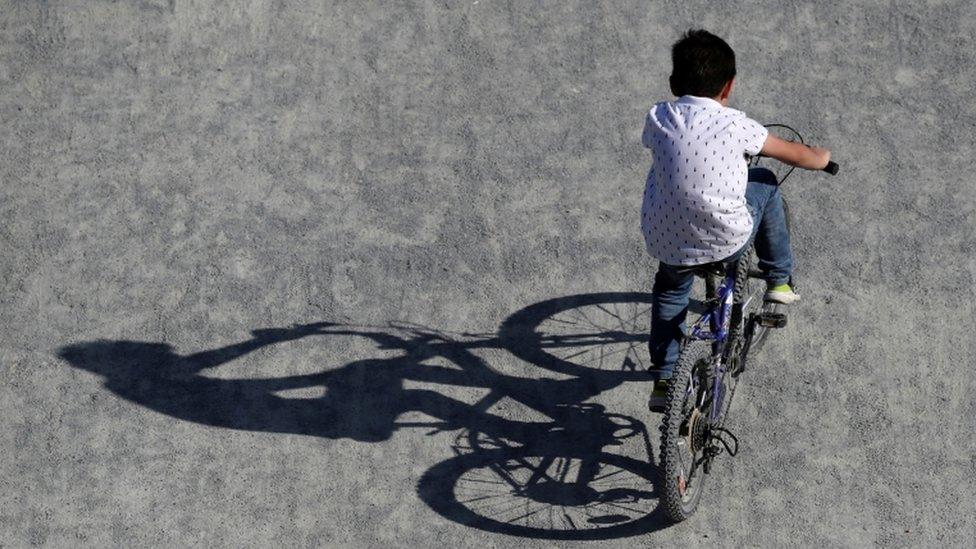
Belgium has been under lockdown since 14 March
Belgian Prime Minister Sophie Wilmès has announced a detailed plan to gradually lift the country's coronavirus restrictions.
Under new rules, all shops will be allowed to open their doors again from 11 May, with schools reopening the following week - albeit with a cap on pupil numbers in each class.
But Ms Wilmès cautioned that "nothing is set in stone".
More than 45,000 people have tested positive for the virus in Belgium.
More than 6,900 deaths have been recorded in the nation of 11.4 million - the highest rate per capita in Europe. More than half the fatalities have been in care homes, and the number of deaths in hospitals has been falling.
Another 241 deaths were reported on Saturday, external, of which 164 were in care homes and 72 in hospital. The number of people being treated in intensive care has fallen to 934.
Comparisons with other European countries may be somewhat misleading, as some countries are believed to be under-reporting deaths, while Belgium includes suspected cases in care homes.

A SIMPLE GUIDE: How do I protect myself?
AVOIDING CONTACT: The rules on self-isolation and exercise
HOPE AND LOSS: Your coronavirus stories
VIDEO: The 20-second hand wash

After hours of discussions on Friday, Prime Minister Wilmès announced a timetable to gradually end the country's lockdown, which started on 14 March.
The first businesses to open will be fabric shops on 4 May, in order to help people comply with new regulations requiring all Belgians aged 12 or over to wear masks on public transport. Industry will also be allowed to resume activity.
Other shops will reopen a week later, subject to strict conditions.
Schools will start opening up again from 18 May, but no more than 10 children will be allowed in each class and they will have to have at least 4sq m (43sq ft) of space.
Cafes and restaurants will not be permitted to open before 8 June.
However, the timetable could still change if the outbreak worsens. Authorities will have to ensure that everyone is provided with masks.
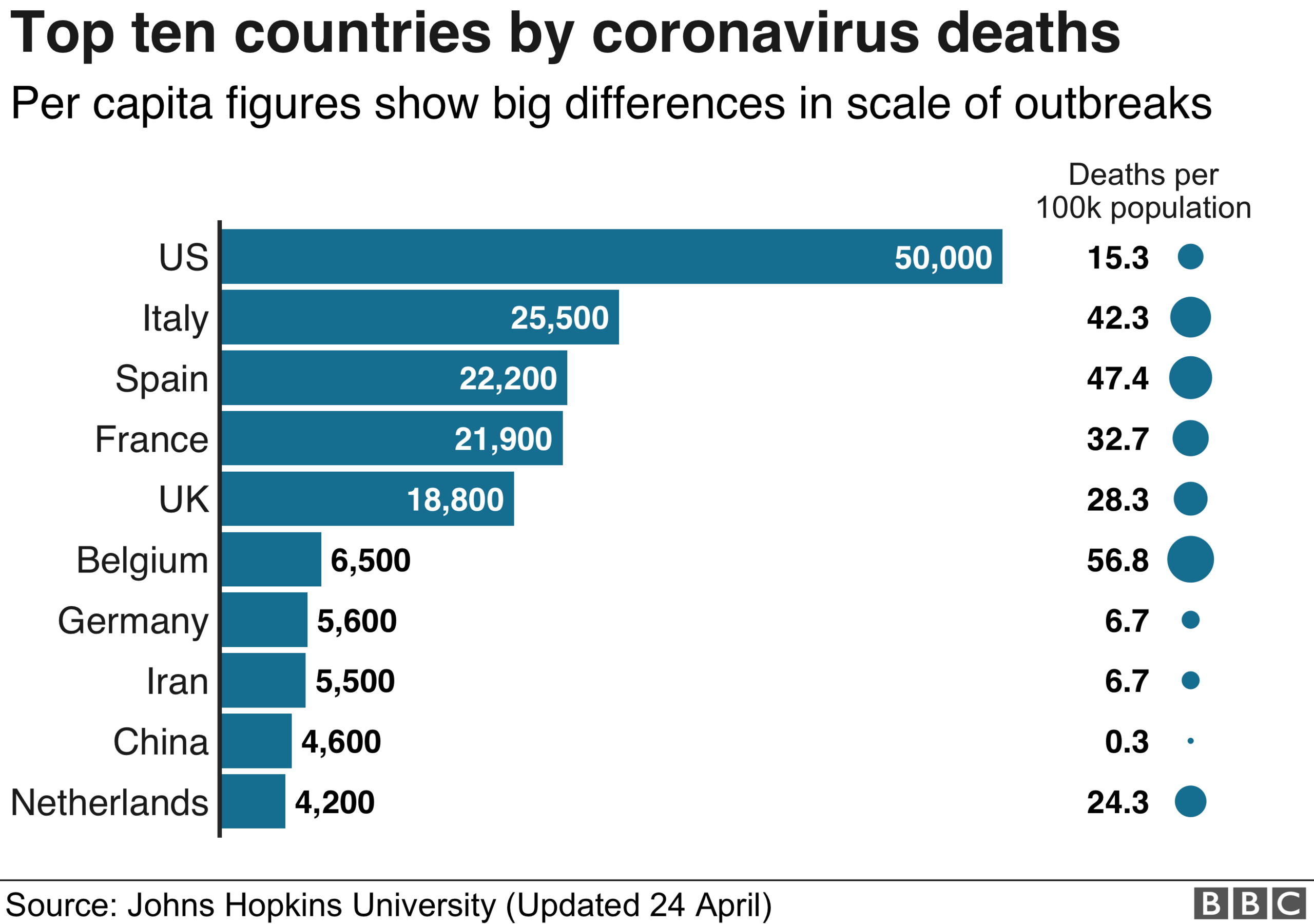
A number of other European countries have already announced measures to ease their lockdowns. On Friday, the Czech Republic ended restrictions on free movement which had been put in place to help halt the spread of coronavirus.
Some shops have already reopened in Germany and schools there will gradually reopen from 4 May, although bars, cafes, restaurants, cinemas and music venues will all remain closed.
Meanwhile, Poland's Health Minister Lukasz Szumowski has called for a two-year delay to the presidential election - due to take place in two weeks' time - saying it was the safest situation given the pandemic. So far, the governing Law and Justice party has resisted public and opposition pressure to postpone the vote.
Should I wear a mask to stop coronavirus?
- Published24 April 2020
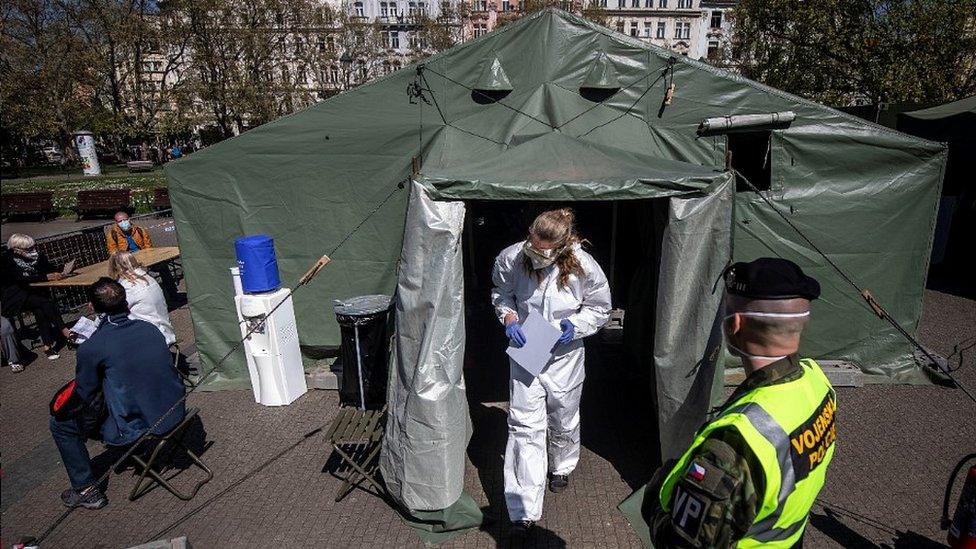
- Published23 April 2020
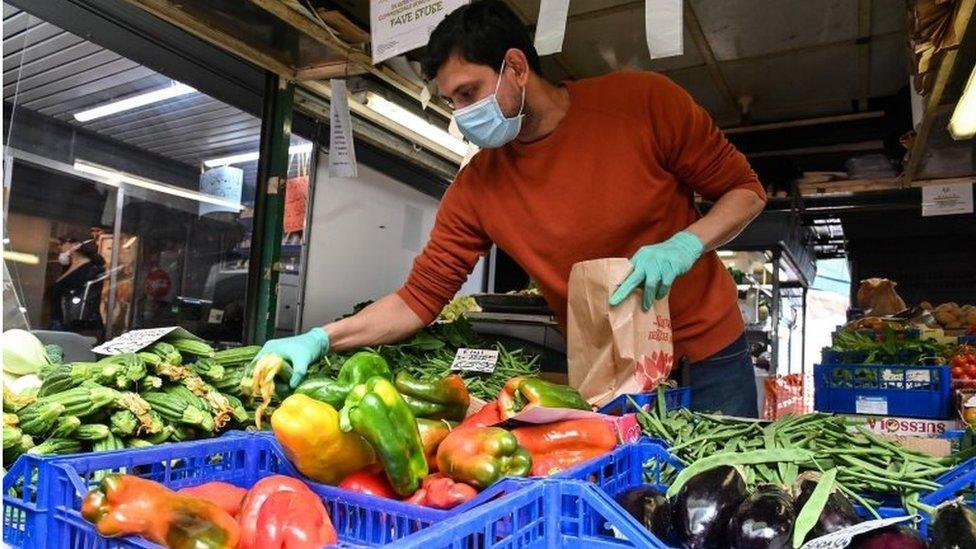
- Published18 April 2020
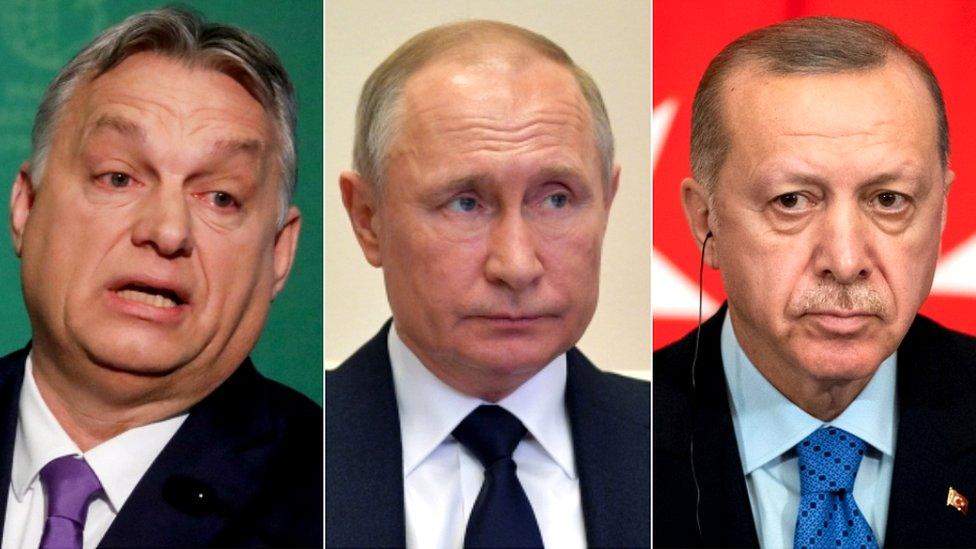
- Published15 April 2020
